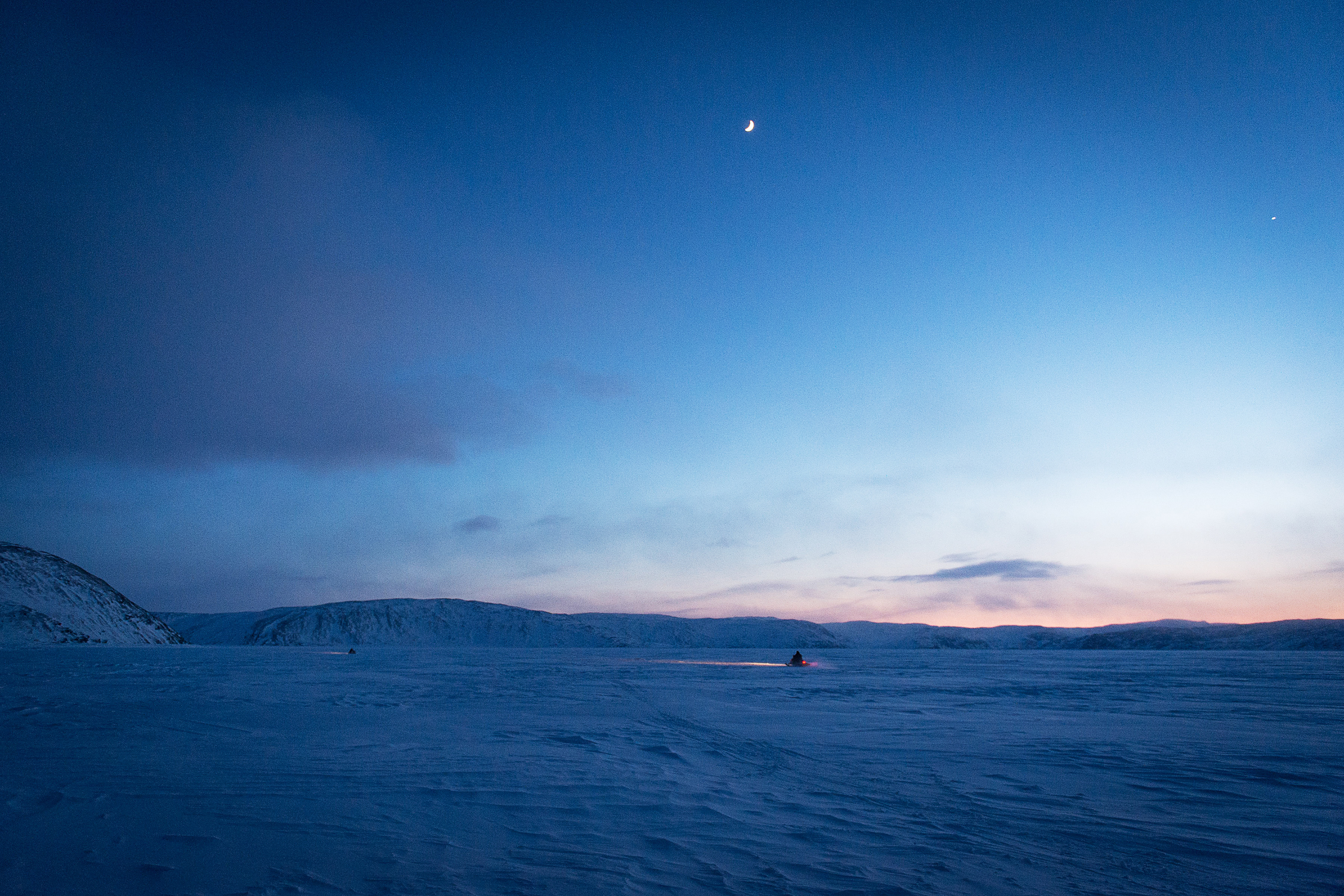Community-based research a focus as circumpolar indigenous groups met last month in Nunavut

Forced relocations, dealing with harvesting regulations, having to leave a small community to go to college or university—does any of this sound familiar?
While many Nunavummiut and Nunavimmiut might relate to those challenges, these stories didn’t come from Canada.
Circumpolar Indigenous peoples travelled from Greenland, Alaska, Finland and Russia to Clyde River, Nunavut, in late April to talk about what they want to see more, and less, of when it comes to community-based research.
Lead by University of Colorado academic and long-time Clyde River resident Shari Gearheard, the four-year, $550,000 project, funded through the United States National Science Foundation, aims to compile a guide or list of best practices for how to conduct Arctic research.
But the inaugural meeting, held the last week of April, consisted of more than just sitting around a table, translating Russian and discussing opinions on how to influence, participate in, and benefit from future Arctic research. It was an opportunity for a valuable cultural exchange.
“It was great to bring people together from around the Arctic where a lot of the issues that we were talking about, or that people care about, are shared. They’re really similar, they just have these different experiences,” said Gearheard.
“We learned a lot but it was also really emotional.”
Gearheard said talking about shared struggles to maintain language, culture and family ties in a modern world with an unpredictable climate—and unpredictable political regimes—brought a range of emotions from joy to empathy on behalf of visitors and local participants as well.
“What I found interesting was how the Indigenous people in different parts of the world, especially the Arctic, are surviving,” said elder Jacob Jaypoody, a Clyde River Inuk who participated in the week’s meetings.
“There were some reindeer herders that were here. It’s not like Inuit but they’re surviving using the same techniques as Inuit. Reindeers are their main diet and their main clothing, similar to Inuit but in a totally different way. Their animals are domesticated.”
The Clyde River visitors represented six circumpolar cultures—Skolt Saami, Iñupiat, Evenki, Yupik, Sakha and Kalaallit.
The project grew from Gearheard’s own experiences doing research in the North.
Lead author of The Meaning of Ice: People and Sea Ice in Three Arctic Communities and co-founder of the Ittaq Heritage and Research Centre, Gearheard has made it a priority to change fundamentally how people and northern environments are studied.
For instance, local people should have more control over what gets studied, first and foremost, she said.
When southern researchers get big, multi-year grants, they have a responsibility to consult northern peoples to find out what northerners want to know and what might benefit them. Researchers then need to include local people in the project, and share the results, in Inuktut.
“More and more, communities are wanting to take more control over the research process and assert their rights over the research process,” Gearheard said.
“So a big part of the purpose of this is to get people together who’ve been engaged in research in some way and talk about those experiences: what’s been good, what’s been not good, what would they like to see moving forward for their communities.”
And while participants had plenty to say about that, they also took time, during their week-long visit, to get out on the land and ice.
Using snowmobiles and dog teams, organizers and local volunteers helped ferry visitors out to an iceberg frozen in the sea ice to have a picnic one sunny day.
Gearheard, who has her own dog team, said she got some good tips from Igor Kolesov, a Russian reindeer herder from Yakutia.
Kolesov had never been on a dog sled ride—he uses reindeer to pull his sled back in rural Russia—but he and Gearheard were still able to discuss techniques, equipment and rope configurations.
Gearheard said she is grateful to the local Nammautaq Hunters and Trappers Organization for sharing country foods, to Clyde River’s mayor, for welcoming the visitors and offering gifts, and to local people who came out in large numbers to support community events with delegates.
She especially wanted to thank youth participants Kolola Kolola and Albert Panipak who helped with note-taking and hosting visitors.
The group hopes to meet in a different location annually, for another three years and when the project is complete, they aim to produce a kind of “best practices” guideline for community-based Arctic research which they will publish and circulate.